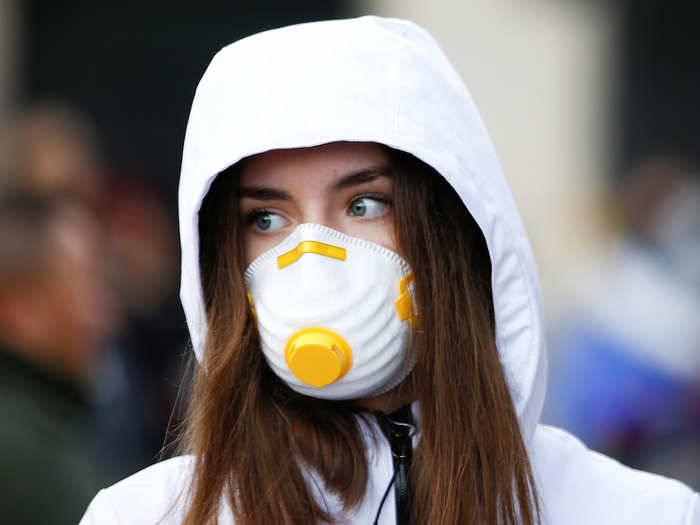
Three new cases in Scotland on Thursday brought the total confirmed number of patients to 90.
There are six in Scotland, 80 in England, three in Scotland, one in Wales and three in Northern Ireland.
Professor Chris Whitty, the country's chief medical officer, said it was now "highly likely" that the virus is being spread across the UK by people who haven't travelled.
He said it was inevitable that the number of cases in the UK will rise, and it will almost certainly not be possible to prevent an outbreak.

UK Prime Minister Boris Johnson has sought to play down the threat of the crisis.
"We need to strike a balance," Johnson told ITV's Good Morning programme on Thursday, adding that there was no need to consider school closures at this stage.
"Slightly counter-intuitively, closing schools and stopping big gatherings doesn't work as well as people think," he told the programme.
He added: "As far as possible it should be business as usual for the vast majority of people."

The government has mostly stopped trying to "contain" the virus and is instead focusing on trying to delay its spread, the chief medical officer said on Thursday.
He said containing the spread of the virus among the early few patients who caught it was now "extraordinar[ily] unlikely" long-term outcome, and said the government was now focused on trying to delay the outbreak until the spring.
Whitty said that approach — which overlaps in many ways with "contain" — had several benefits. Those include delaying the peak until the NHS is in a better position to respond, and buying more time so that the disease can be better managed, possibly with the aid of new drugs.
Additionally, there may be a benefit to delaying the outbreak until the spring or summer, when the rate of infection may go down, as is the case with flu.

The government's action plan, which was published on Thursday, outlines a number of measures that might be introduced if there is a major outbreak. Ministers will make a decision as to which actions they introduce based on scientific advice, and
As well as potential school closures, these include:


According to NHS England, the best way to avoid catching or spreading coronavirus is to:

The symptoms of coronavirus are:
These symptoms do not mean a patient has the illness, however, as they are similar to more common diseases such as cold and flu.
 I spent 2 weeks in India. A highlight was visiting a small mountain town so beautiful it didn't seem real.
I spent 2 weeks in India. A highlight was visiting a small mountain town so beautiful it didn't seem real.  I quit McKinsey after 1.5 years. I was making over $200k but my mental health was shattered.
I quit McKinsey after 1.5 years. I was making over $200k but my mental health was shattered. Some Tesla factory workers realized they were laid off when security scanned their badges and sent them back on shuttles, sources say
Some Tesla factory workers realized they were laid off when security scanned their badges and sent them back on shuttles, sources say Stock markets stage strong rebound after 4 days of slump; Sensex rallies 599 pts
Stock markets stage strong rebound after 4 days of slump; Sensex rallies 599 pts
 Sustainable Transportation Alternatives
Sustainable Transportation Alternatives
 10 Foods you should avoid eating when in stress
10 Foods you should avoid eating when in stress

Copyright © 2024. Times Internet Limited. All rights reserved.For reprint rights. Times Syndication Service.